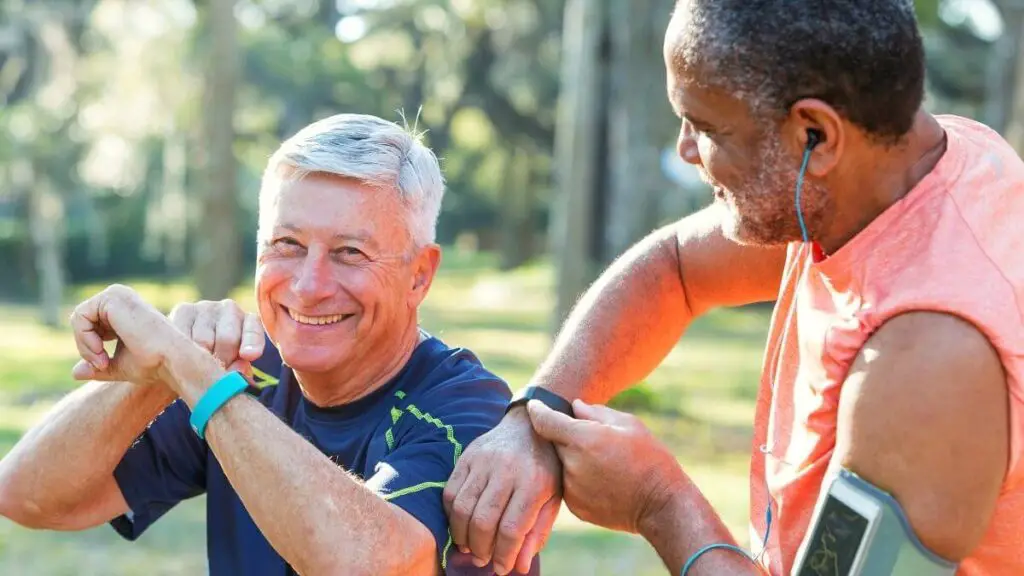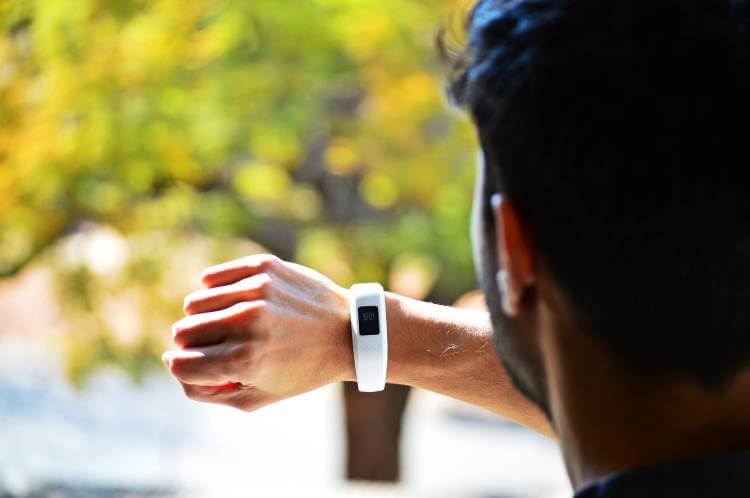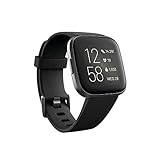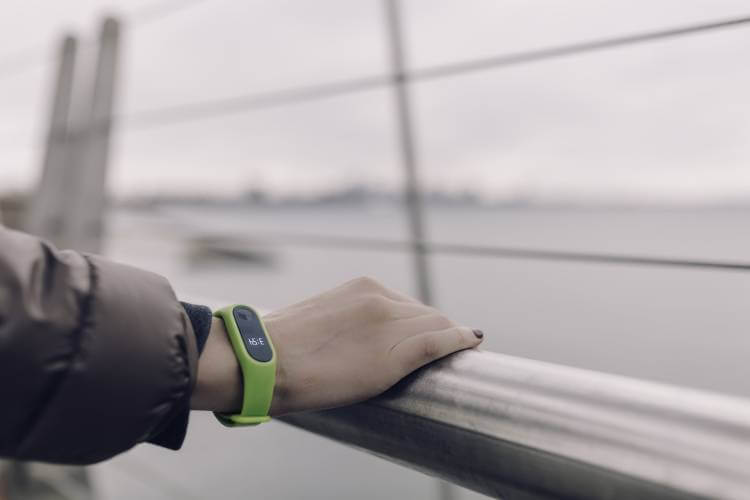Www Easy Fitbit for Older People Easy Tracking Step and Other Activity

Fitbits for Seniors? You bet. Movement Counts!
Exercise is medicine, and particularly so with seniors. Regular exercise not only improves one's quality of life, but it also leads to less joint pain, greater levels of strength, better balance, better cardiac output, less depression, and a host of other benefits.
It is because of this that exercise is vital for seniors. We've written extensively about the importance of exercise for seniors here at Elder Guru in the past, even going as far as to tell what the best equipment is for seniors, and even how to deal with a saggy butt!
How can we increase the level of exercise that one participates in daily, however? Are there things we can do to incentivize us to engage in greater levels of activity? Absolutely. The answer? Wearing a Fitbit.

Why Fitbits for Seniors?
There are a few reasons why a senior may be interested in wearing a Fitbit, but the primary one is this: a Fitbit motivates one to get as much exercise as possible throughout the day.
Seniors tend to know the importance of exercise, or at least they should. A regular workout routine only causes somebody to realize how beneficial exercise is once they quit. Joints aren't as happy anymore, muscles seize up, and one just doesn't feel as strong after taking a break from exercise.
This is particularly the case with seniors. Typically, the more movement they're getting throughout the day, the better they feel and the less pain they experience.
But the problem here is that people need the motivation to get into a regular exercise routine. Everybody knows that exercise is good for them, it's just exercise takes work, humans are inherently lazy, and we often need the motivation to push us from this laziness into our workout.
Motivation is where a Fitbit can help.
People enjoy being able to check off boxes from their list, and a Fitbit serves as a constant reminder that the box hasn't been checked yet. Until one gets their necessary step count for the day and minutes of activity, one's Fitbit doesn't count the day as having been "completed" and the user is notified of this.
Within the gym setting, I've had multiple people tell me that it was their Fitbit that caused them to take an extra walk after dinner to ensure that they get their necessary steps throughout the day.
Accountability is another huge factor with holding people to their workout and daily step counts, and this is another benefit of a Fitbit. These devices allow you to challenge your friends who also have Fitbits and you can see the number of steps that all the friends in your network have met throughout the course of the day. Competition is a powerful motivator – it feels good to win – and it's fun to end out the day seeing that Fred down the street was 500 steps behind you.
This is yet another thing I've seen throughout the gym setting, as people have told me that it was their Fitbit that encouraged them to get more activity in throughout the course of the day so that they could beat X in the daily step competition.
The other prime benefit of a Fitbit is if one has a heart condition.
Cardiac conditions are common amongst seniors. Atrial fibrillation, otherwise known as AFIB, is common as well. This is a condition where the atrium of the heart is fluttering rather than beating properly. Many times, people can feel if they are experiencing an AFIB episode, but not every time, and a Fitbit can help to tell people if they are currently in AFIB.
With that knowledge the user can respond accordingly (ask your cardiologist for the gameplan here).
The same benefit exists for those with other heart conditions that require them to monitor their heartrate regularly. Somebody who has had a past heart attack or other heart event that needs to keep track of their heart rate as they exercise can also get benefit out of this.
Best Fitbits for Seniors
1) Fitbit Inspire 2
Perhaps the easiest of the Fitbit line for seniors to use, this Fitbit is pared down to only the most basic of activity tracking features. A step counter, heart rate monitor, activity tracker, and clock – that's what you get for your $85 here. This helps to make it so there aren't 3000 menu options to scroll through to get to what you want and helps to make this one of the most intuitive designs out there.
Three color choices are available, this fitness tracker can be worn while swimming without fear of its being damaged, and the battery only needs to be recharged every ten days.
2) Fitbit Versa 2
One of the chief advantages of this Fitbit is its large screen. For those who have trouble reading books designed for ants, this can be a pleasant removal away from the stereotypical world of fitness trackers with tiny font.
Sale

Fitbit Versa 2 Health and Fitness Smartwatch with Heart Rate, Music, Alexa Built-In, Sleep and Swim Tracking, Black/Carbon, One Size (S and L Bands Included)
- Use amazon Alexa built in to get quick news and information, check the weather, set timers and alarms, control your smart home devices and more all through the sound of your voice (third party app may be required; amazon Alexa not available in all countries)
- Based on your heart rate, time asleep and restlessness, sleep score helps you better understand your sleep quality each night; also track your time in light, deep and REM sleep stages and get personal insights
The standard fitness tracker features are available here, but an alarm clock, text messaging capability, and a calendar are present as well. Six color choices are available, the device runs around $180, and it's made in Malaysia if you're looking for other countries of manufacture outside of China.
3) Fitbit Sense
At the pricier end of the spectrum is this feature-rich Fitbit design. It costs roughly $230, but this design not only gives you the standard stock of fitness tracking features, but you also receive GPS, irregular heartbeat notifications, the ability to easily send irregular heartrate notifications to your doctor, and ECG app, the ability to measure your blood oxygen levels, and a stress monitor as well.
For those who have underlying heart conditions or other medical conditions that are exacerbated by stress, this may prove to be a beneficial resource that will let you know when you need to step away from a particular situation for some time until you can return to the matter later when your stress response has subsided.
5 Alternatives to a Fitbit
Maybe you don't like Fitbit technology? There are several other alternatives to the Fitbit brand that do essentially the same thing, and in many cases do it better.
1) Eurans Fitness Tracker
The Eurans is one of the most economical fitness trackers on the market. Seven color options are available, and the battery life here is a week long. The basics of a fitness tracker are present here – heart rate, time spent working out, steps tracked, calories burned – and the device can connect to your smartphone via Bluetooth as well to alert you when you receive a notification on your phone.
Sale

Eurans Fitness Tracker with Heart Rate, Sleep Monitor for Men and Women, Activity Tracker with Message Reminder, Step Calorie Counter Pedometer Watch (Purple)
- 14 Sports Mode Tracking: Automatically tracks your real-time heart rate, sleep quality, 14 kinds of sports like running, workout, hiking, and etc., and a map of your workout route. EURANS fitness tracker also reminders you to move after a long time of inactivity.
- 24hs Activity Tracking: Tracks your everyday achievements such as your steps, calories burned, distance covered, helping you stay motivated and maintain a healthy lifestyle.
Rated to IP67, this device can be worn as one is hiking in the rain as well without having to worry about the device suffering damage. It can't be worn in a shower or while swimming, but for day-to-day activities, this device is sufficiently protected.
2) Garmin Vivosmart 4
Four color options are available with the Vivosmart 4, and you end up with the brand quality of a Garmin, to boot. That name brand comes at a price though, as this fitness tracker costs hundreds of collars.
The battery lasts for a week, the tracker connects to your smartphone via Bluetooth to notify you when you receive messages and to give you charts and graphs available on your phone of your activity. Heart rate is monitored and even one's VO2 max is analyzed with this device.
That's a lot of features in a little band.
3) Samsung Galaxy Fit
For those with an Android phone who are looking for a fitness tracker, the Samsung Galaxy Fit will give all the stock fitness tracker features for a reasonable price. The battery lasts about half a week before it needs to be recharged, and the device is labeled as "swim ready" as well.
If you're someone who enjoys putting in the laps at your local pool early in the morning and want a device that will track your progress (and you have an Android phone), this may be the option you've been looking for.
4) Apple Watch Series 7
This is likely the most feature-rich alternative to a Fitbit out there. Heart rate, sleep, blood oxygen, and activity monitoring are all present as would be expected. However, there are other features available that the rest of the fitness trackers out there don't have.
You get a very crack-resistant screen, and the device is rated at WR50, meaning this device could be worn while swimming without any problem. Those with heart conditions may appreciate this fitness tracker as notifications are sent if an irregular heartbeat is detected by the watch, and fall detection is present as well. This tracker knows if you've fallen to the ground and can help you to contact others should that happen.
An ECG can be created by this watch as well. If you're looking for all the features, this is it. This all comes at a cost, of course, with this fitness tracker running (no pun intended) on the pricier side and only having a battery life of around 18 hours.
5) Apple Watch SE
A cheaper Apple alternative to the Series 7 would be the SE. For several hundred dollars you get virtually the same features. ECG readouts are available, blood oxygen levels can be measured, irregular heart rate notifications are possible, and a built-in compass is present as well (in case you're out hiking).
In addition to tracking one's activity, this tracker also has cellular connectivity, meaning it can be used for phone calls or text messages. Fall detection, a regular feature of Apple wearables, is present as well, giving one the ability to call for help should some type of emergency take place as you are out walking solo through the neighborhood early in the morning.
All this combined help to make this a very attractive alternative to Fitbit products.
FAQs
What is the easiest Fitbit for seniors?
The easiest Fitbit for seniors is likely the Fitbit Inspire 2. There are minimal screen prompts or buttons, so there's less to remember. This makes for a more intuitive design.
What Fitbit has fall detection?
No Fitbits are available with fall detection. If this is the primary feature that is being sought after, a Fitbit is not going to be the product you are looking for. Check out Apple products if this is a feature you're looking for.
Is there a hard fall setting on a Fitbit?
No, there is no Fitbit with a hard fall setting available at this time. Check out Apple products if this is something you're looking for.
Conclusion
There are a wide number of reasons why a senior may want to consider a fitness tracker. The motivation one needs to get up off the couch and out walking in the park is often the main reason I see people using one of these, but the ability to monitor heart rates is a huge issue for those who have struggled with heart conditions in the past.

In addition, if sleep apnea is a problem, the ability to monitor one's sleep quality may prove to be beneficial data for a doctor to be able to have access to so that they can make better recommendations for a plan of treatment.
It's unfortunate that Fitbit doesn't feature any type of fall assistance at this time, though, as this could easily prove to be a beneficial feature for seniors everywhere. Nobody has to feel the embarrassment or pay the subscription fees of a LIfeAlert type system yet can still receive the benefits these types of systems grant should they choose a non-Fitbit fitness tracker (such as with Apple products) these devices offer.
Overall, there are several reasons you may want to consider one, ranging from motivation to safety. What are your thoughts, though? Are there other benefits to owning a fitness tracker for seniors? Are there other fitness trackers you recommend? Let us know in the comments below.
Source: https://www.elderguru.com/fitbits-for-seniors/
0 Response to "Www Easy Fitbit for Older People Easy Tracking Step and Other Activity"
Post a Comment